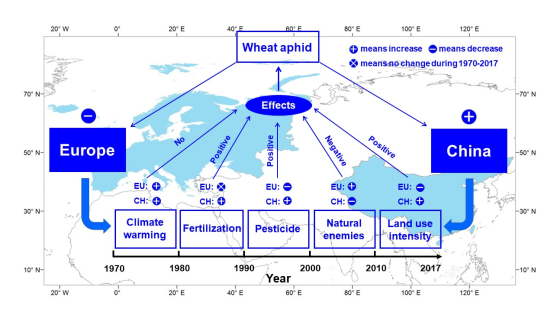
Temperature has a large influence on insect abundances, thus under climate changes, identifying major drivers affecting pest insect populations is critical to the world food security and agricultural ecosystem health. Here, we conducted a meta-analysis with data obtained from 120 studies across China and Europe from 1970 to 2017 to reveal how climate and agricultural practices affect populations of wheat aphids. Here we showed that aphid loads on wheat had distinct patterns between these two regions, with a significant increase in China but a decrease in Europe over this time period. Although temperature increased over this period in both regions, we found no evidence showing that climate warming affected aphid loads. Rather, differences in pesticide use, fertilization, land use, and natural enemies between China and Europe may be key factors accounting for differences in aphid pest populations. These long-term data suggest that the agricultural practices impact wheat aphid loads more than the climate warming.
https://www.nature.com/articles/s42003-022-03731-z



